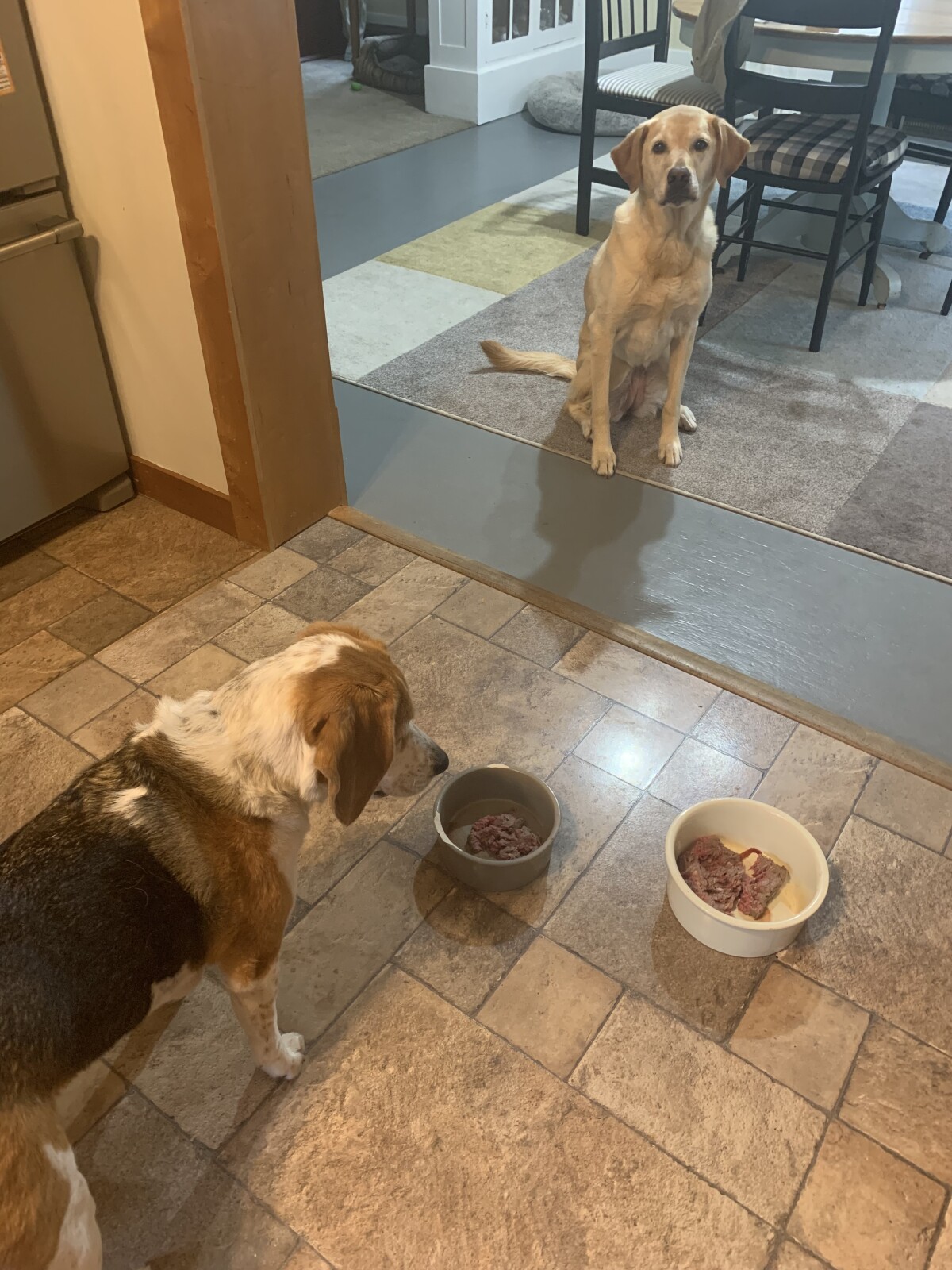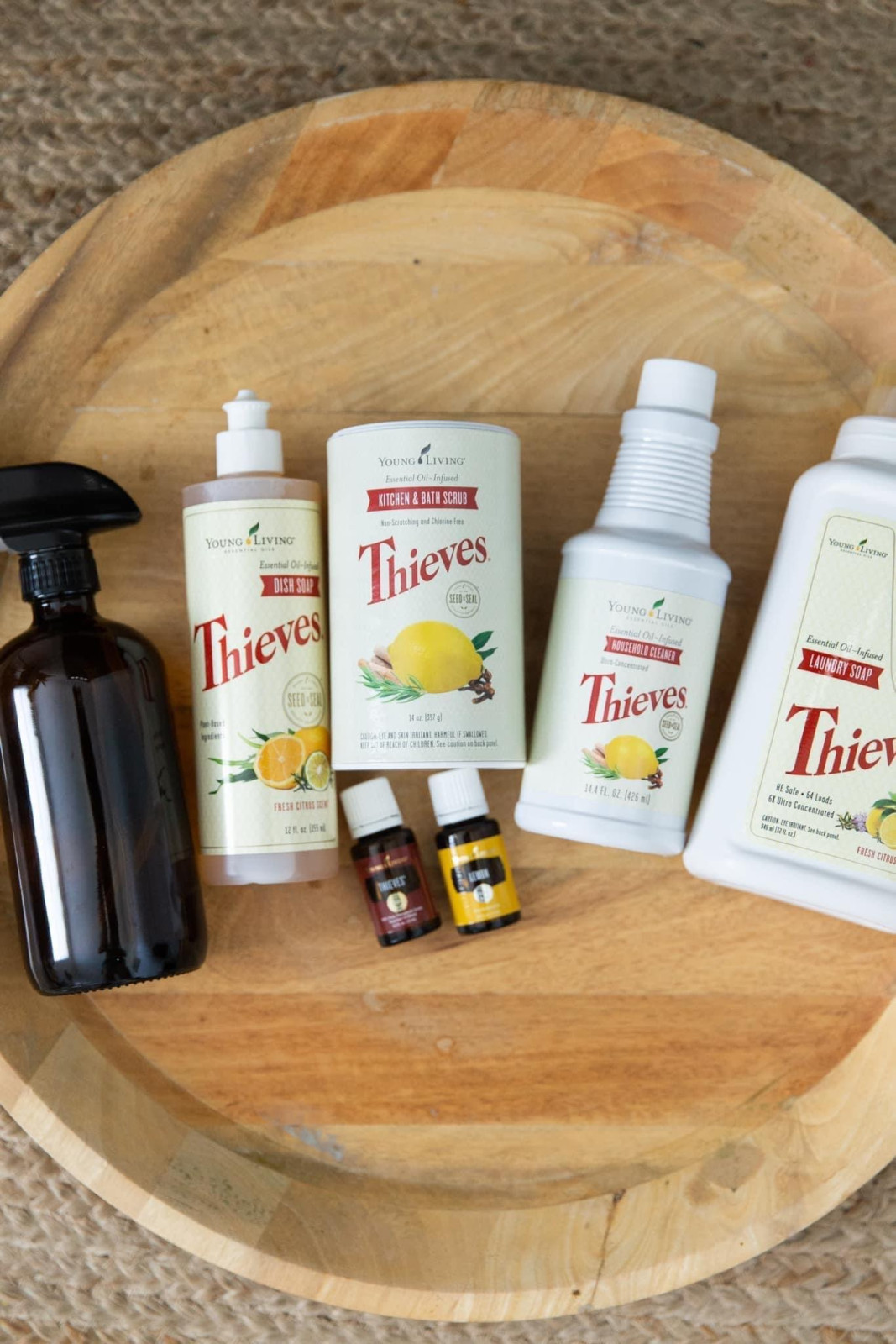
What Do You Feed Your Dog?
I feed my two family dogs raw dog food. Not dry. Not cooked. Raw. Yes, you heard me right. RAW. As in, uncooked meat and organs. And, yes, it is more expensive than kibble, but it’s worth it. I will explain my thinking and then provide links below if you want to dive deeper into the why.
It’s quite simple, really. I can break it down to two reasons. Hear me out.
Number one, dogs are carnivores. Number two, dry processed dog food is junk food.
Here’s my thinking: God created all of creation. He made the earth and all that lives on it and he made provisions for all creatures to survive. He didn’t make an animal and leave them without food to survive, and to survive well. The domestic dog isn’t so different from its ancestors that God needed man to recreate a special kind of food for it to survive. Dogs are carnivores. Protein and fat should be their primary fuel source. Just as cows are designed to eat and digest grass/grains as their primary food source, dogs are created with the digestive system equipped to eat prey. They have pointed teeth to chew and a shorter GI tract. When we consistently give them food that is high in processed carbohydrates, it has a negative impact on their health. Digestive issues arise. Allergies. Disease. They were not given the tools to process these foods, nor do they need them to survive.
It’s only been in the last 160 years that the shift away from real food happened. Before kibble, domesticated dogs were thrown steak bones and human table scraps. They probably even hunted small prey. I know their wild ancestors did.
The beginning of dry dog food didn’t begin until sometime around the Industrial Revolution, which capitalized on convenience and saving money. In 1860, when a man named James Spratt witnessed dogs in England eating hardtack, he was inspired to make something similar for dogs. Eventually, that led to the invention of the milk bones, meat meal, canned food and later kibble as we know it, aka junk food for dogs. And now, the dog food industry has become a billion dollar industry, comprising the health of our beloved pets. (I don’t believe the original intention was to harm, but it’s been a result, nonetheless.)
This is how the idea of feeding meat/raw food has become so taboo. The pet food industry wanted to sell their product, so they pushed the message that anything other than dry, processed food is dangerous for your pet to eat. It’s been a marketing scheme. But, I’m here to tell you, what was good for dogs in the beginning of time, is still good for them now. It’s not only healthy to feed your dogs raw meat and organs, it's in their best interest.
Just as I have adopted the paleo way of eating for myself, I believe it’s best for my dogs. What that means is, I give them a diet that closely mimics their ancestors. Not one that has been manufactured under high heat through the extrusion process. Not one that is full of grains, fillers and meat by-products.
I want my dogs to live a long healthy life and I believe that begins with the food that they eat. My dogs have been eating raw food for most of their life. They have NEVER gotten sick because of raw food. They are now 13 years old and, as far as I can tell, are as healthy as can be. Which I am very grateful for.
If you’re thinking of feeding raw food to your pets, rest assured there is an easy way. For a short time I did take on the task of making homemade raw food. I’ll be honest, it didn’t work out too well for me. Sourcing and time were issues at the time. Thankfully, I discovered there were health- minded pet food companies that delivered frozen raw food right to my door. So, now, all I do is pullout the frozen patties to thaw and they're good to go. It's a great option for those of us who don't want to tackle homemade. I’ll never go back. I encourage you to do the same.
Questions? contact me
-Jen
Raw Food Companies I like:
Some links to learn:
https://healthypets.mercola.com/sites/healthypets/archive/2020/09/26/feeding-your-pet-raw-food.aspx
https://www.dogfoodadvisor.com/canine-nutrition/dogs-carnivores-omnivores/












0 Comments